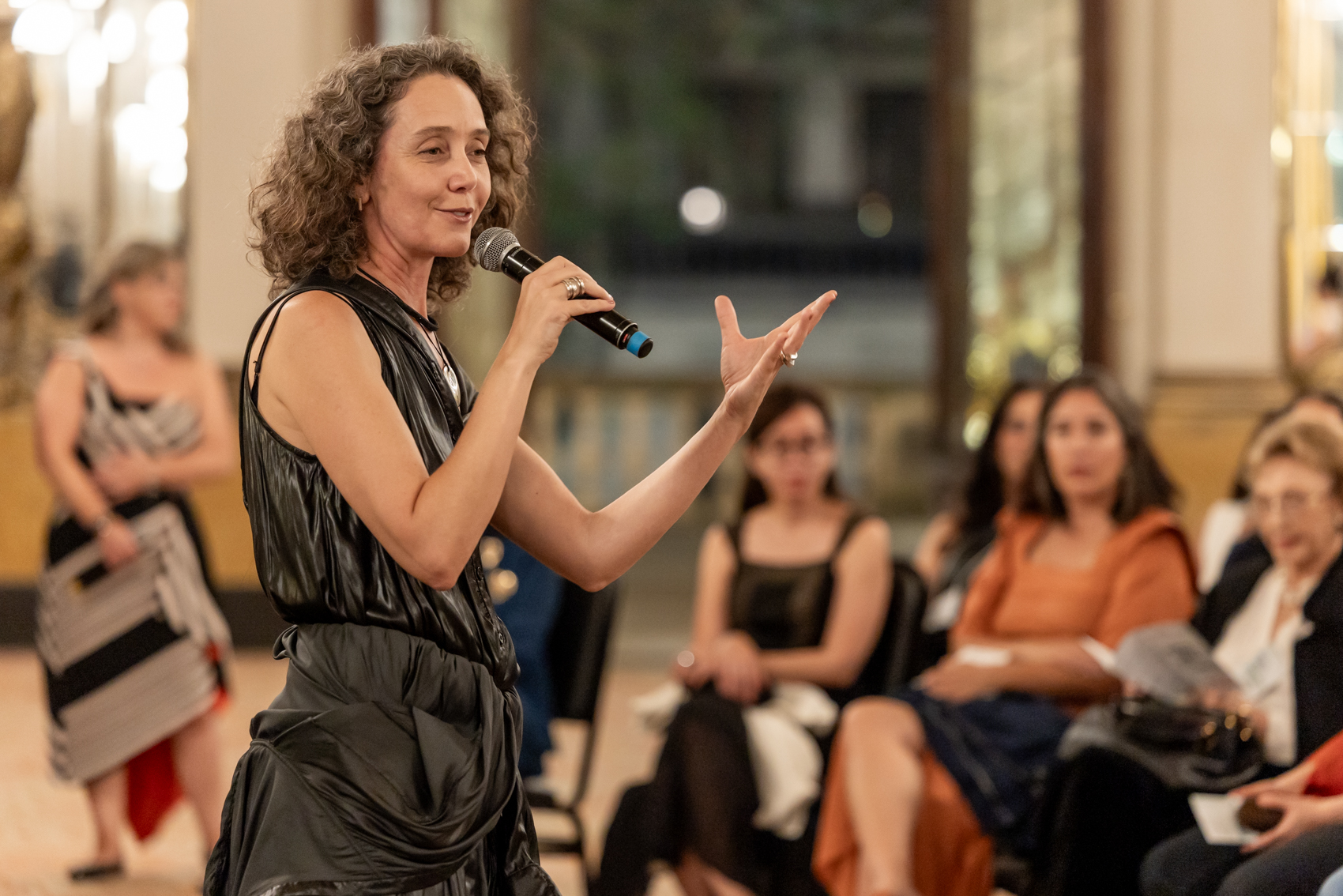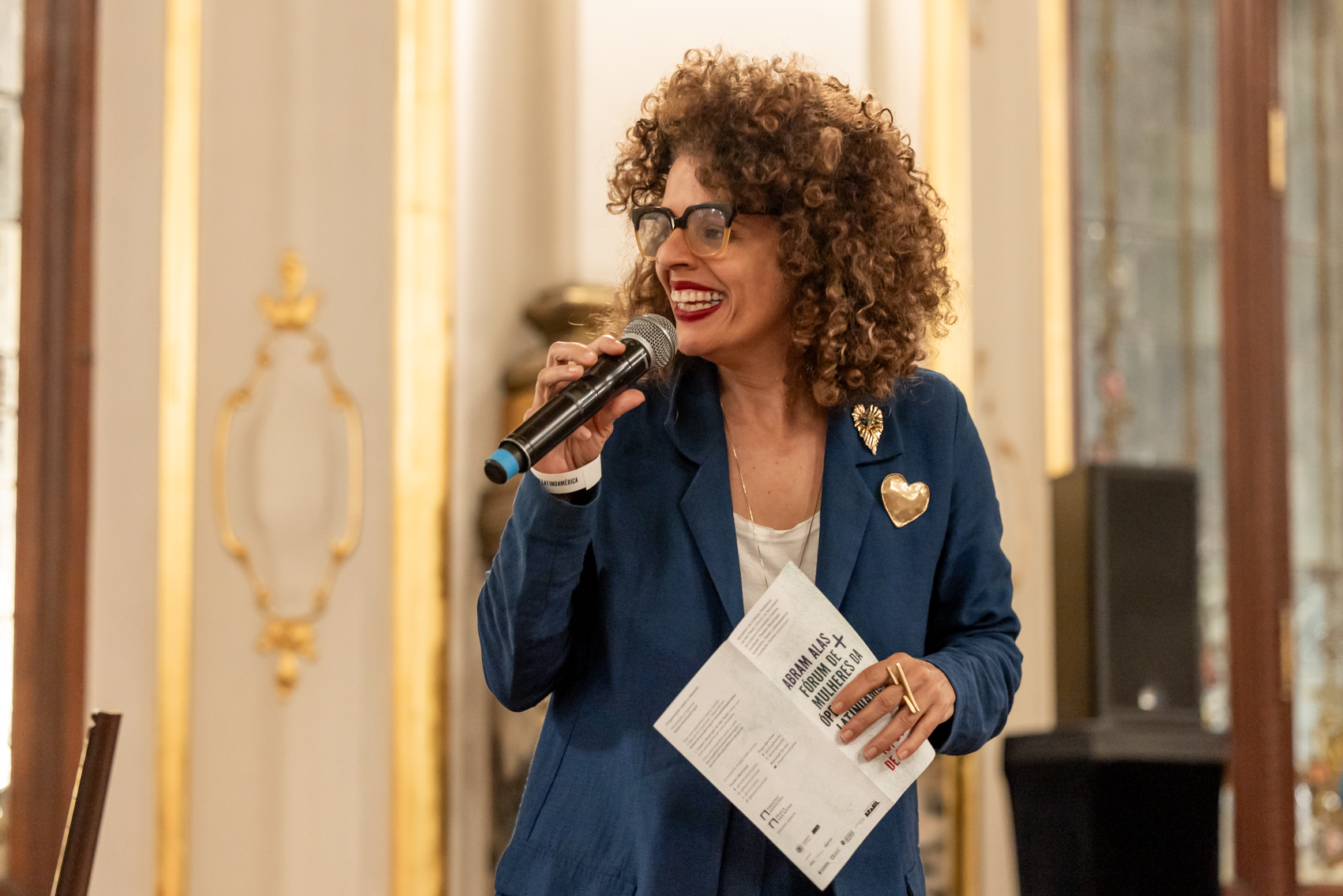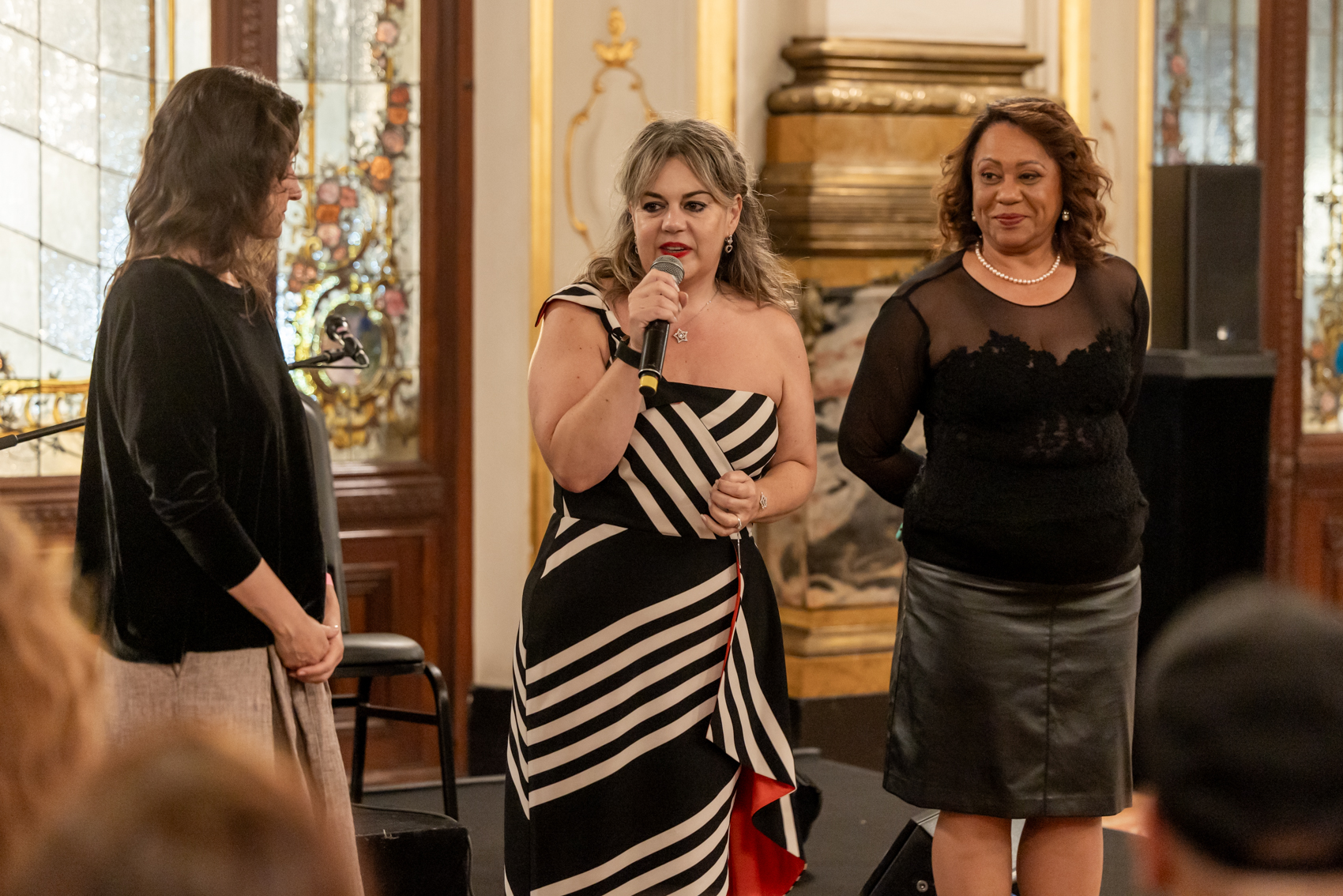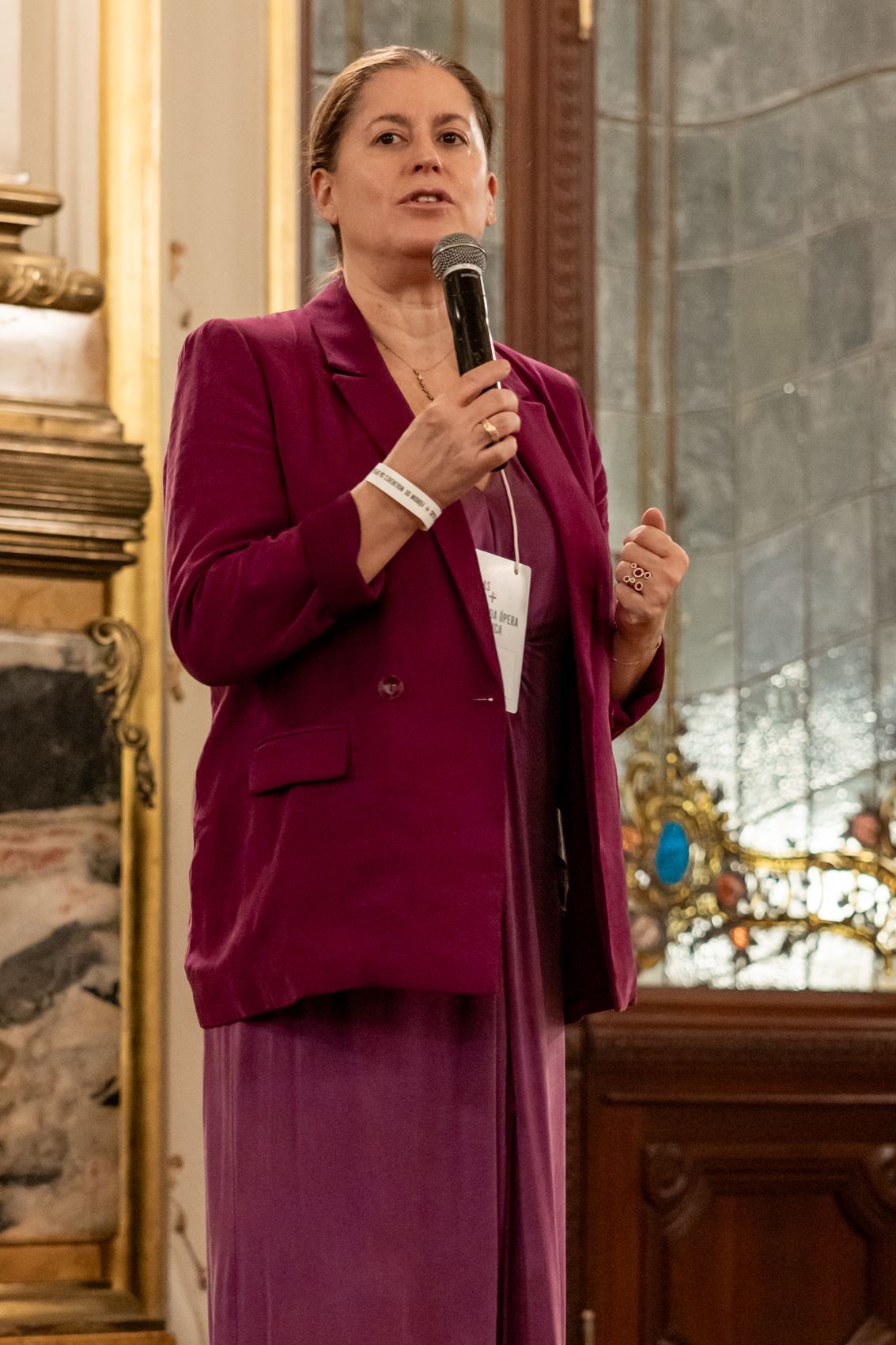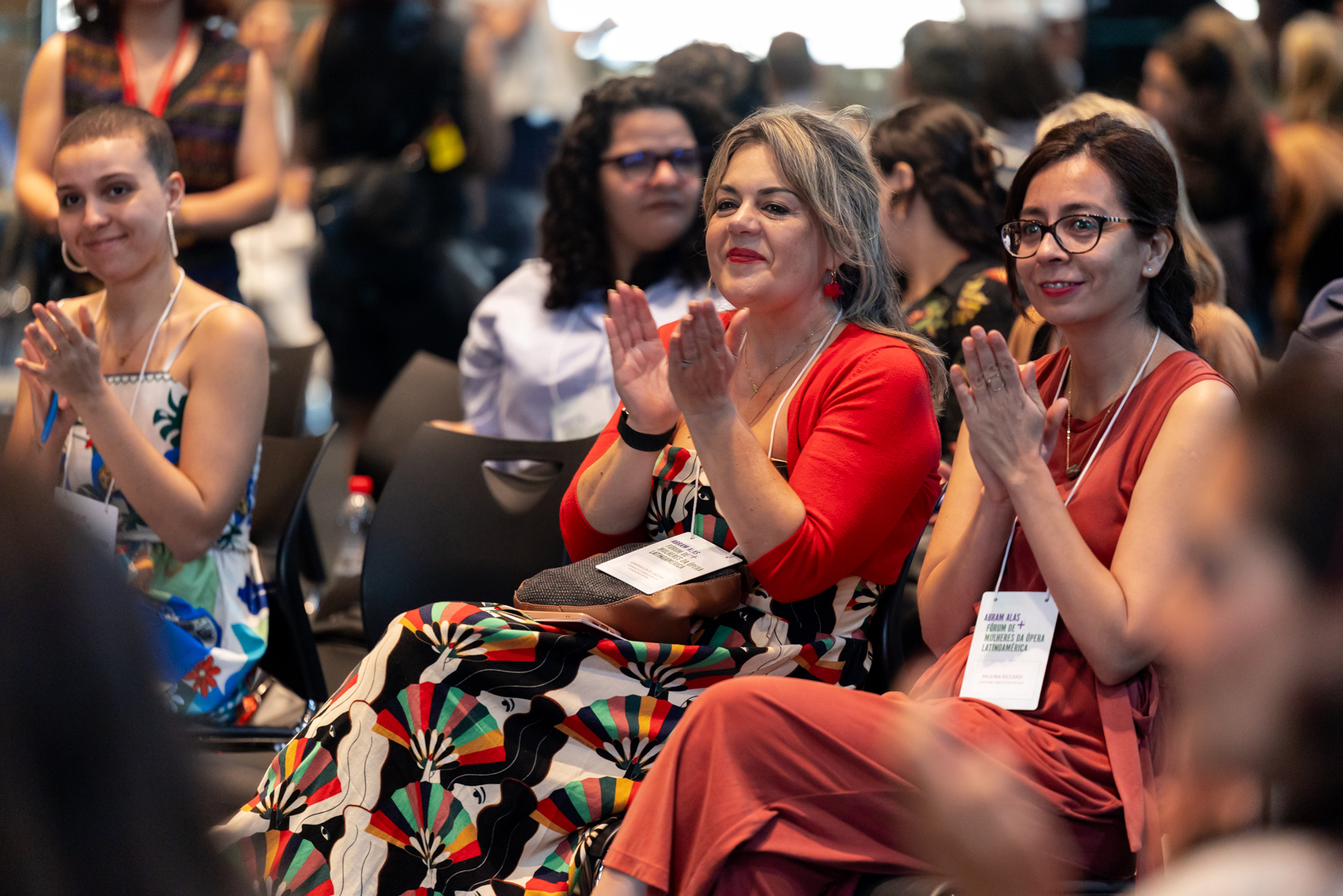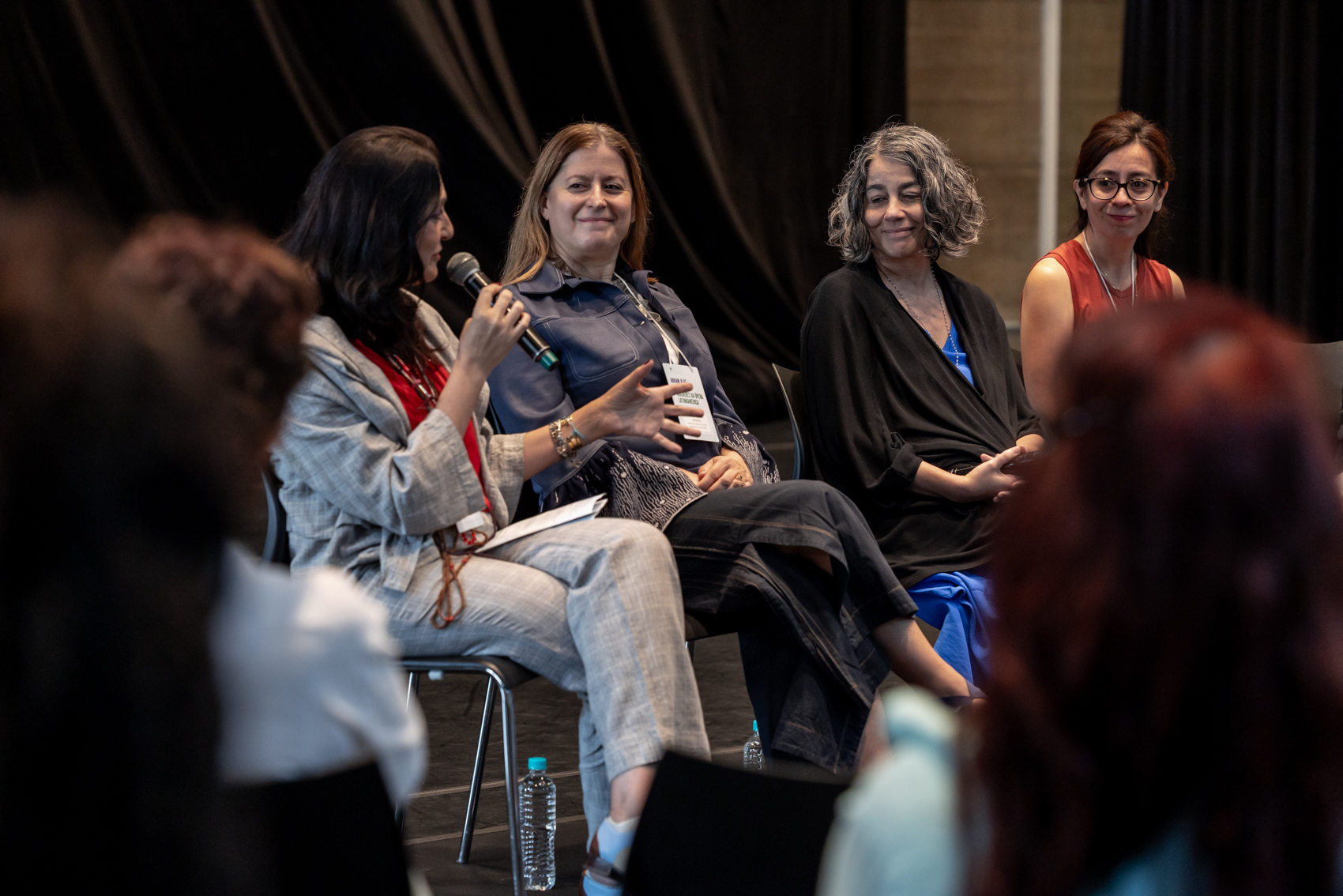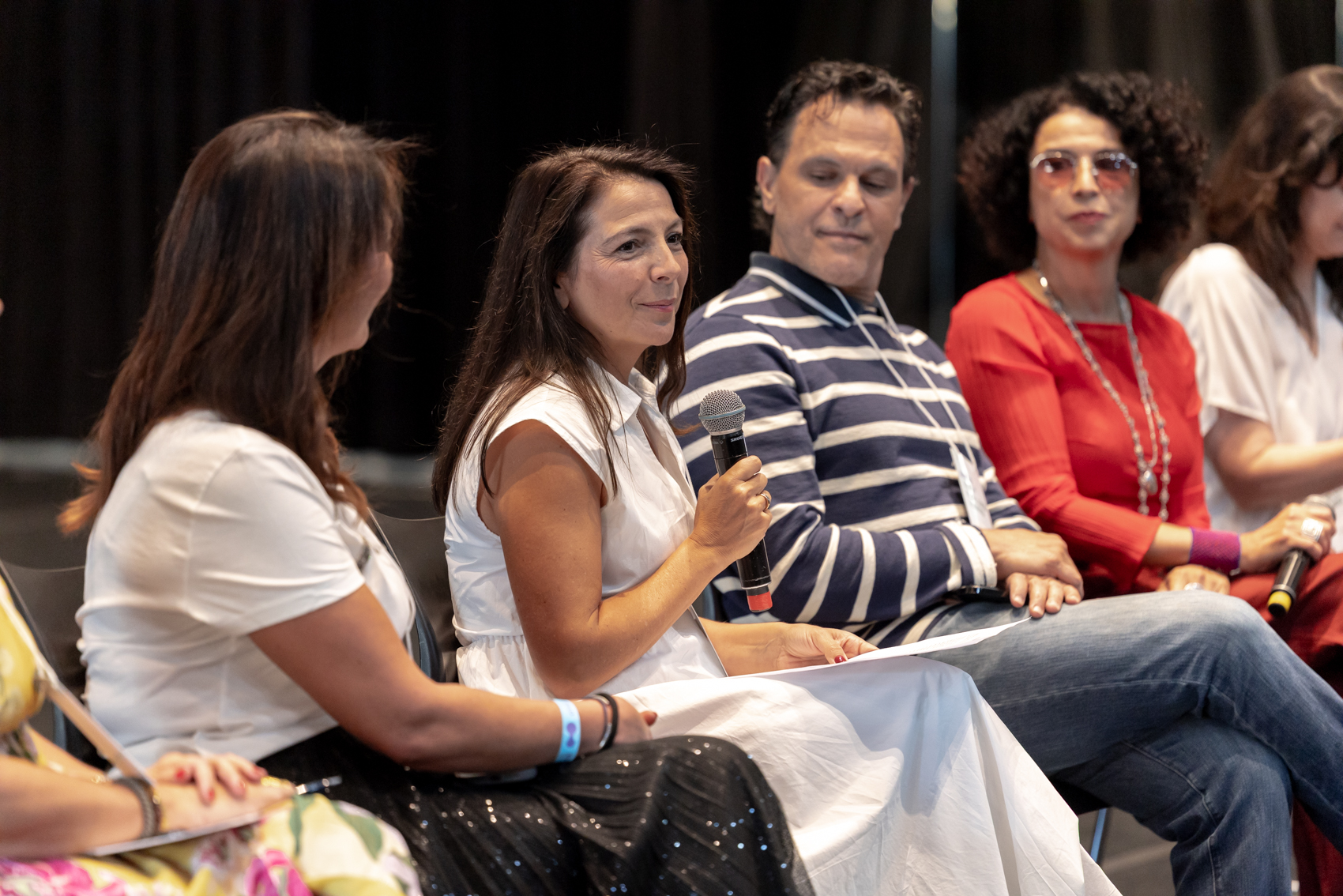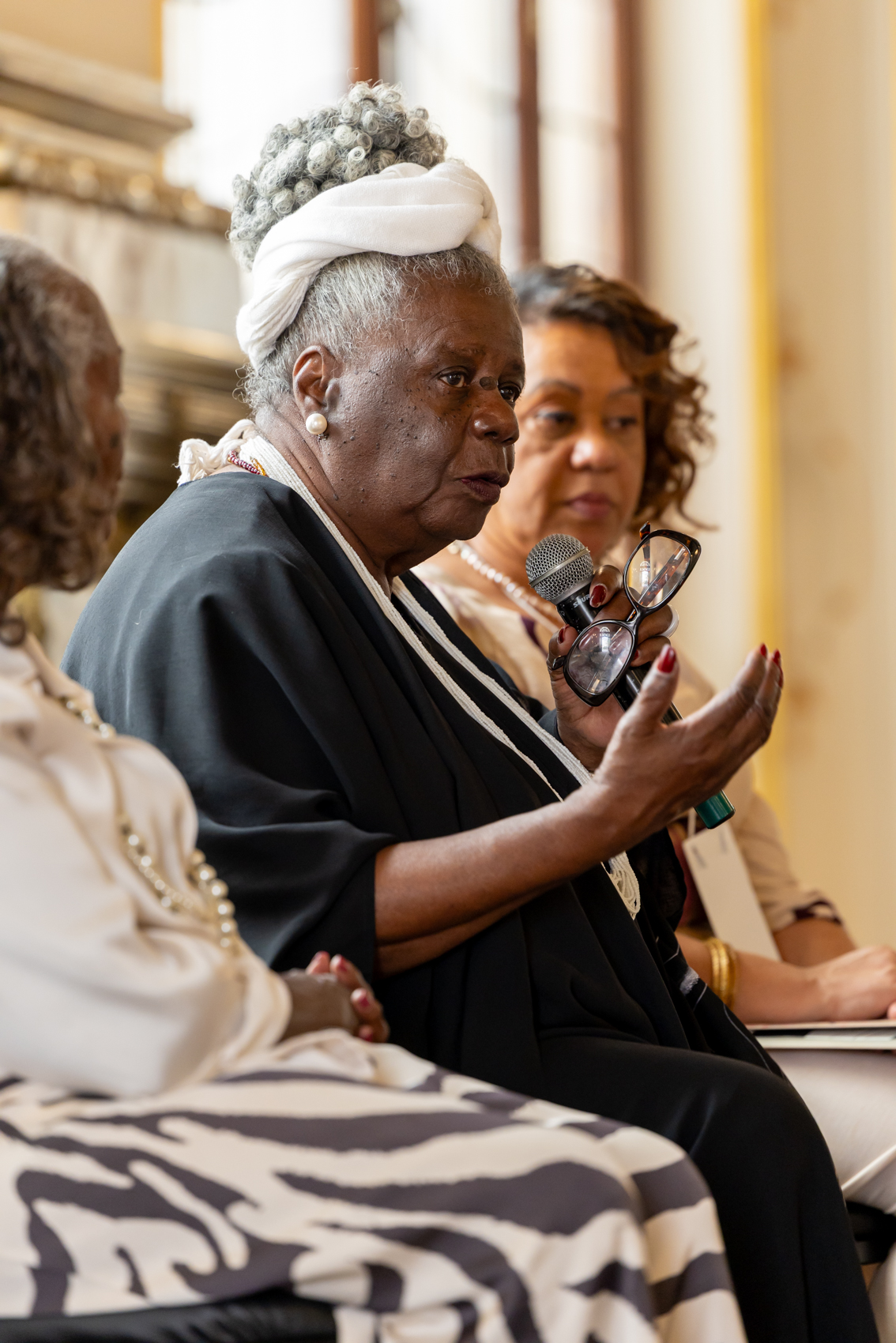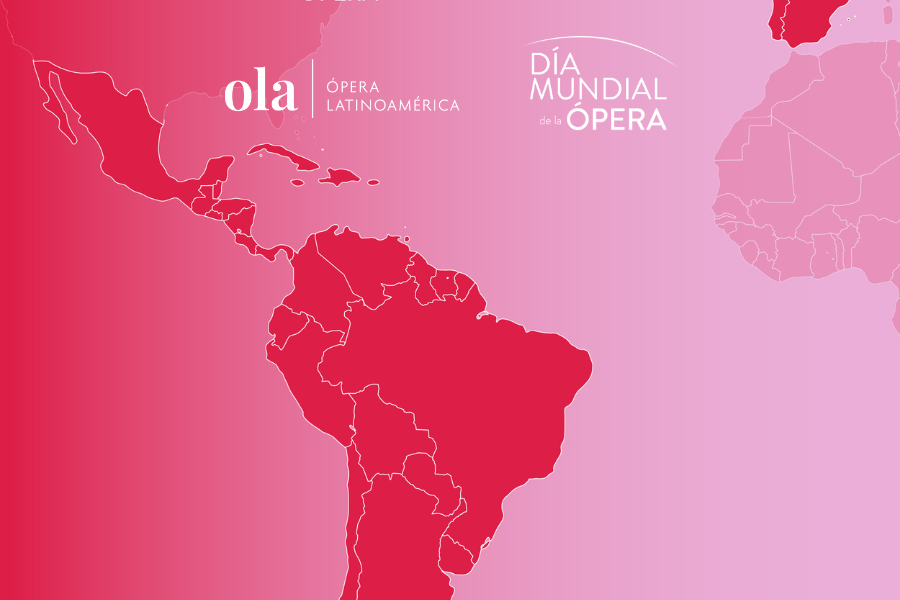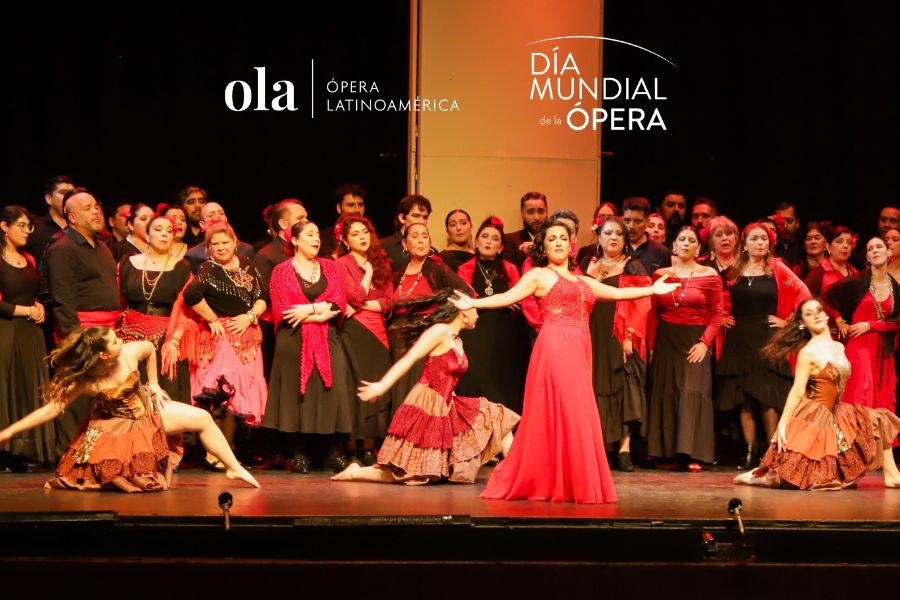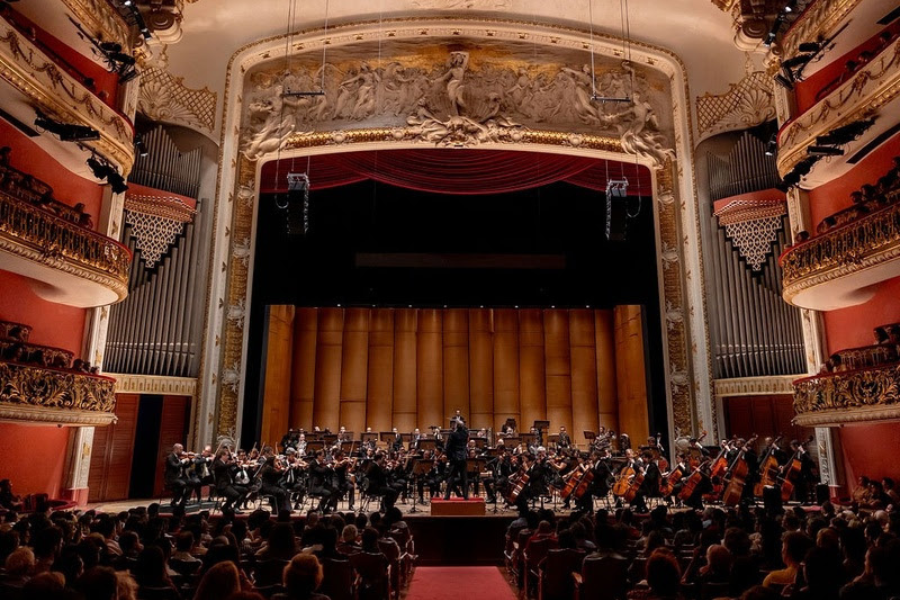Gender equality, female leadership and diversity in opera: The Abram Alas meeting and the OLA Women’s Forum brought together leaders in the performing arts and music in São Paulo

Over three days, the meeting gathered female directors of festivals, theatres and companies from across Ibero-America, alongside artists, researchers and cultural managers, at the Theatro Municipal de São Paulo to reflect on gender equality, female leadership and diversity in opera, consolidating the OLA Women’s Forum as a space for dialogue and action in the Ibero-American performing arts.
From 19 to 21 September, the Theatro Municipal de São Paulo hosted the second edition of the Abram Alas event and a new meeting of the Opera Latinoamérica (OLA) Women’s Forum, three days devoted to reflection and action around women’s leadership in the arts.
The event opened with Andrea Caruso, Director of the Theatro Municipal de São Paulo, who introduced the Abram Alas curatorial committee: journalist Camila Fresca, singer and teacher Edna d’Oliveira, and soprano and founder of the Donne Foundation Gabriella Di Laccio. The welcome also highlighted the continuity of the OLA Women’s Forum, following its first edition at OLA’s 16th Annual Conference in Manaus in 2023.
In this context, Carmen Gloria Larenas, President of OLA and General Director of the Teatro Municipal de Santiago, stressed “the importance of creating spaces for meaningful conversation about the role of women in cultural management.”
Representatives from across the OLA network attended, including Teatro Colón (Argentina); Festival Amazonas de Ópera; Theatro da Paz de Belém; Theatro Municipal de São Paulo; Theatro Municipal do Rio de Janeiro; Theatro São Pedro (Brazil); Teatro Municipal de Santiago (Chile); Teatro Mayor Julio Mario Santo Domingo (Colombia); Cascais Ópera–International Singing Competition (Portugal); and Teatro Teresa Carreño (Venezuela).
Dialogue, projects, equality and diversity in the performing arts
The programme also included a visit to the Technical Centre of the Theatro Municipal de São Paulo, where participants learned about its work in archiving, cataloguing and preserving costumes, props and scenery, as well as its educational initiatives for schools and communities.
The first day concluded with a performance of Porgy and Bess by George Gershwin, conducted by Roberto Minczuk and staged by Grace Passô.
On Saturday, a series of panel discussions and project presentations took place. The first panel explored women’s participation in the music industry, featuring Yalilé Cardona (Director, Bogotá Classical Music Festival), Anabela Cunha (Director of Connecting Dots and of the Amajazzon and Womad Brasil festivals), João Marcelo Bôscoli (music producer and entrepreneur), Alexandra Maurício (General Director, Cascais Ópera International Singing Competition), and soprano Paula Morelenbaum. The session focused on management and festival-creation experiences, with gender parity as a cross-cutting theme.
The second panel, dedicated to female leadership in theatres, brought together Paulina Ricciardi (Executive Director, OLA), Carmen Gloria Larenas, Flavia Furtado (Director, Festival Amazonas de Ópera) and Alessandra Acosta (Executive Director, Sustenido). The conversation centred on each panellist’s personal trajectory, the challenges of occupying decision-making roles in theatres, festivals and opera companies, and leadership strategies in the sector.
In this context, Paulina Ricciardi presented initiatives promoted by OLA, such as the Women’s Forum Mentorship Programme, which has brought together more than forty professional women from Ibero-America. She also shared findings from a survey on female representation in the region’s opera theatres, festivals and companies, highlighting “the significant number of women holding leadership positions in technical and communications areas, reflecting a degree of organisational parity among professionals in Latin America and Spain.” However, she emphasised that “there is still a long way to go in the artistic dimension, given the limited female representation in operatic and symphonic repertoire. The goal of this survey is to serve as a mirror, prompting decision-makers to question why there are so few women composers, choreographers or stage directors in their seasons and to consider future actions.”
The programme also included the panel “Women Composers and Performers: Past and Present”, with the launch of the publication Trajectories of Women and Gender Studies in the CTMSP Collection, and presentations of research from the Donne Foundation on women’s representation in orchestras and repertoires performed worldwide.
On Sunday, the discussion “Challenges and Perspectives of Black Artists in the Arts” addressed the need to deepen diversity and representation within the Brazilian performing-arts scene, followed by “Writing Opera in the 21st Century”, focused on collaborative work between women composers and librettists. That day also featured a World Café-style workshop on visibility, racial representation, working practices and artistic programming, creating a safe space for sharing experiences and perspectives.
Another highlight of the final day was the encounter with writer Conceição Evaristo, which included poetry recitals, a conversation about her life and work, and the closing concert Canções para Conceição, with Juliana Ripke (piano) and Edna d’Oliveira (soprano).
The meeting also featured working sessions of the OLA Women’s Forum, where participants assessed the progress of the Mentorship Programme and outlined new actions for the future. These included strengthening the bonds between mentors and mentees beyond the formal programme, building closer support networks and continuing to promote the visibility of women composers and creators within theatres’ artistic programming.
Through Abram Alas and the Women’s Forum, Opera Latinoamérica (OLA) reaffirms its commitment to equality, representation and female leadership in opera—consolidating its role as a regional reference point for dialogue and transformative action in the performing and musical arts.


